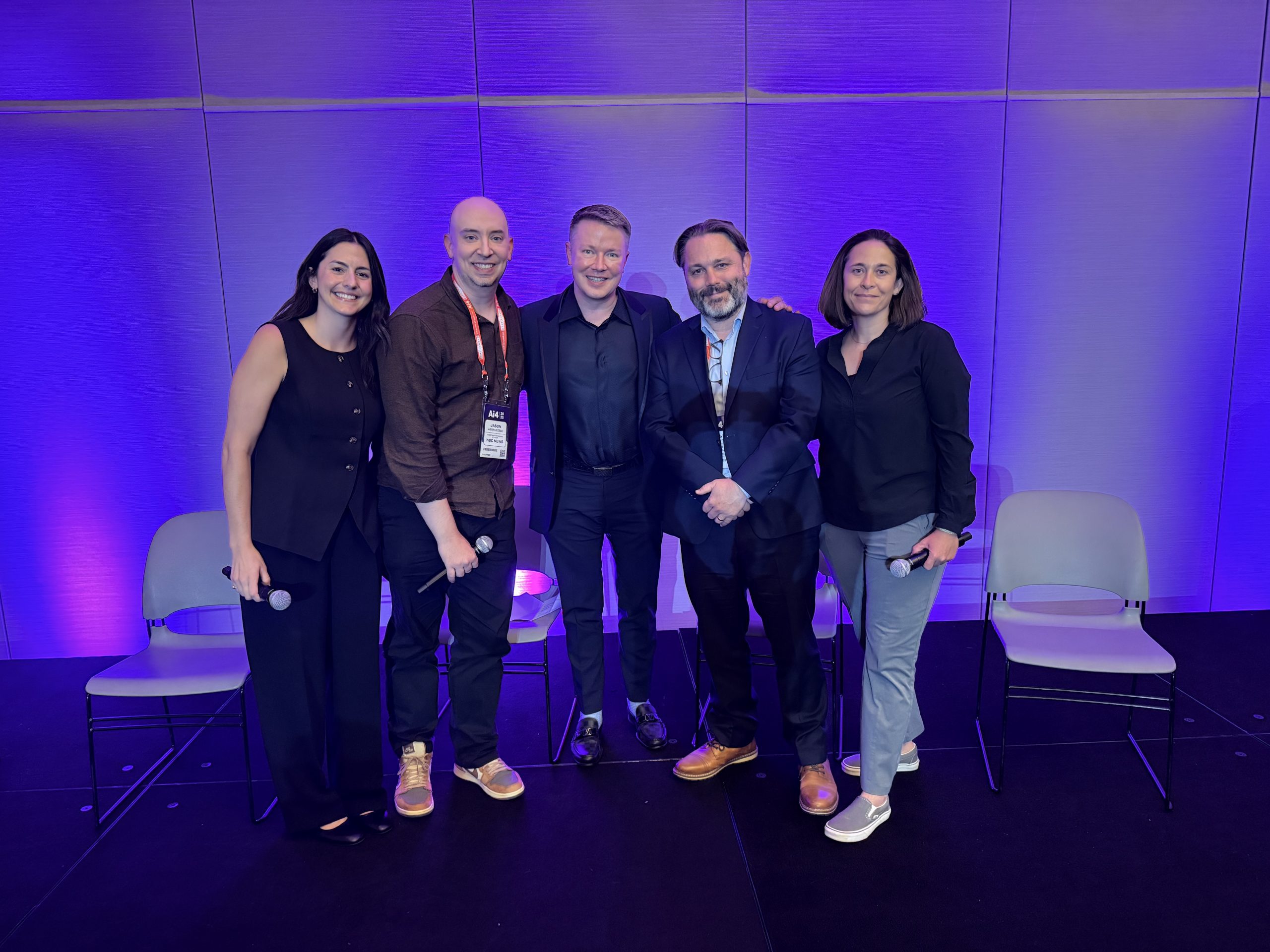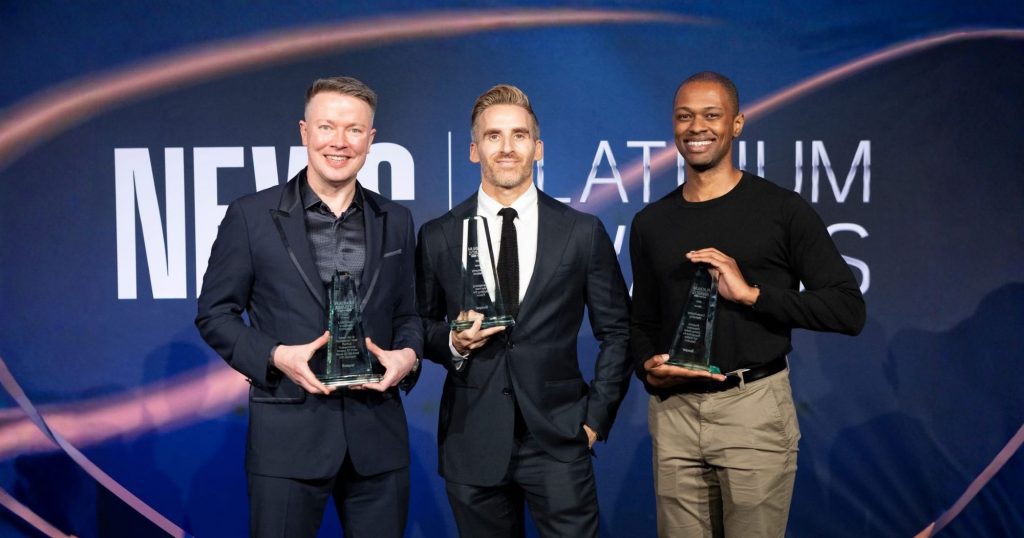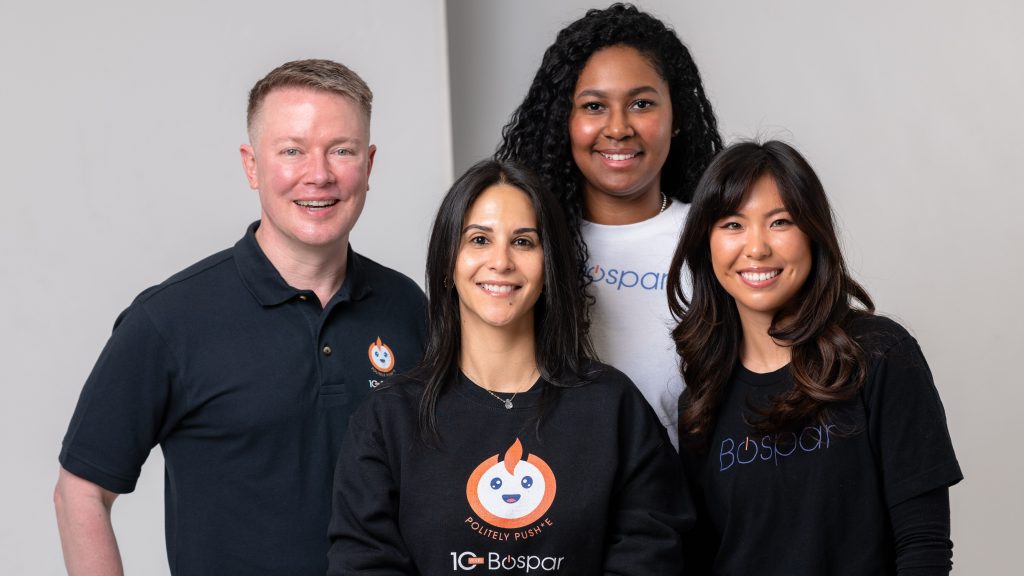As president of the San Francisco Press Club, I knew exactly what I was walking into when I agreed to moderate Ai4’s AI panel on “How AI is changing news”. The intersection of journalism and AI isn’t just an industry story.
It’s personal.
I started with breaking news: Perplexity potentially acquiring Google Chrome “way over what their value” was. Since “a lot of us use Perplexity for news monitoring,” it seemed relevant to our discussion.
Nancy Scola, a tech and policy journalist who contributes to POLITICO Magazine and Washingtonian, immediately cut to the core issue: “Most of the media that you know, I think relies on Google traffic… Perplexity sees that and says, look, this is a great entry point for people seeking information… but it does mean that journalists and news media are getting disintermediated yet again.”
Kelsey Vlamis, a senior reporter for Business Insider, added context: “It’s also a reminder that while there is understandable concern about how AI is going to disrupt our traffic, we are already being impacted by third parties like Google… the stakes are kind of rising.”
The room got quiet.
This wasn’t theoretical.
The Research Moment
Just to put things in context, I Googled “AI and journalism” and shared the headlines with the panel: “AI will slash and burn the journalism field,” I read. “Journalism facing new threats from AI and censorship.”
“Gosh, we haven’t thrown ourselves off the cliff yet,” I said.
Nobody laughed.
Justin Hendrix, CEO and editor of Tech Policy Press, delivered what might be the most brutal assessment: “We are effectively in a kind of back to kind of pre-20th century age of handhills and rumor gossip, stew of nonsense and general anti-science dystopia.”
Nancy, the independent journalist, surprised me with optimism: “I do think the rise of individual journalism is very notable… a small number of journalists will be able to generate really good, high quality news.”
Kelsey brought the front-line reporter’s view: “As a reporter, I’m actually really excited for this shift. Like, I don’t want to write stories just to get paid views.”
When I pushed Kelsey on different types of stories, she explained “commodity news,” stories everyone writes because everyone reads them, versus quality content. “In an age of AI where maybe that traffic isn’t as relevant, we can focus on, okay, well, how do we push this story forward? What’s the second day story?”
Nancy revealed how this is already changing editorial decisions: “We are increasingly asking ourselves, can ChatGPT, can Google Gemini generate the article that we’re writing, and if the answer suggests that we don’t write that article, that is very different than a decision we made just a few years ago.”
Her example: “HHS recently said it was cutting all this mRNA [funding/programming]… Then we write, what is mRNA? That’s what it means… It’s not going to be something anymore [that needs to be explained], because that is what people, I think, are increasingly going to be able to get from AI.”
Jason Abbruzzese, Assistant Managing Editor for NBC News Digital, weighed in on how this affects newsroom workflow and resource allocation at the institutional level, emphasizing the operational challenges major news organizations face.
The Tools Discussion
I mentioned my Otter.ai obsession. Nancy lit up discussing transcription tools and specialized AI for government meetings. Jason shared his perspective: “I am old enough to remember transcribing interviews and scrolling through the transcript… I think using some of those tools I talked about to come up with better drafts of that comment, I think could be really useful.” Kelsey talked about practical applications for individual reporters.
Suddenly everyone was engaged, sharing solutions instead of just problems.
The Misinformation Reality
Justin didn’t mince words about AI’s output quality: “All of these services are flawed, deeply flawed, hallucinatory, sympathetic messes of technology… We’re building a kind of miasma of nonsense.”
Nancy shared a personal story about receiving what seemed like a normal critical response on Twitter: “I thought that doesn’t sound like a human being.”
Kelsey explained the implications for reporters: “It kind of just really hammers down how much you cannot rely on what you see online. It may look like tons of people are having this reaction somewhere, but it doesn’t mean that an actual person is having a reaction now.”
Jason discussed the challenge from an institutional perspective: “I worry a little bit that we’re accompanying ourselves to the fact that sometimes, with AI, produces an interest it’s not high quality. And imagine that’s always going to be the case, right?”
The GEO Revelation
Justin, the Tech Policy Press CEO, introduced something that should concern every communicator: “There’s now essentially an industry going around trying to optimize generative [AI]… We’re already seeing brands do this… with the goal of essentially changing the outputs.”
This is Generative Engine Optimization, the new SEO. I mentioned research showing “articles or familiar lists are the most impactful thing for GEO. But the thing that comes second to that is the content that people write themselves.”
Nancy questioned whether this might actually improve content quality, while Jason considered the implications for how major news organizations should adapt their digital strategies.
Policy and Politics
When an audience member asked about Trump’s “woke AI” executive order, each panelist offered different angles:
Nancy was skeptical: “I think rock is a great example of how it’s not super easy to create a crazy non woke AI, it’s actually been a little funny watch how resistant some of this technology has been to those efforts.”
Justin was more alarmed: “Underneath it is the opposite of demanding neutrality. It’s actually demanding, essentially a politics, putting politics in the technology.”
Jason brought the institutional media perspective on the policy shift: “Represents such a change of pace from past administrations… this administration technology, and now they’re actually listening, well, that’s not what we meant.”
How Bad Will It Get?
I asked the question everyone was thinking.
Kelsey: “I don’t think that we’ve reached the bottom.”
Justin: “Artificial intelligence is great at concentrating power… we’re seeing extraordinary concentration of power at the hands of handful of technology firms.”
Nancy found reason for cautious optimism in quality incentives, while Jason emphasized the importance of established news organizations proving their continued value.
What’s Actually Working
An audience member asked why podcasts and B2B media thrive while traditional newsrooms struggle.
Kelsey nailed it: “People listen to Joe Rogan because they want to listen to him, folks. So if you’re a Joe Rogan listener, that’s like an identity… That there is a face, there’s a name, there’s an identity, there’s an attitude, like a personality.”
Nancy connected this to the rise of individual journalism, Justin to the concentration of power in media, and Jason to how major newsrooms can build similar audience relationships.
The Takeaway
Each panelist brought a crucial perspective: Justin’s policy expertise and dystopian warnings, Nancy’s optimism about individual journalism, Kelsey’s front-line reporting insights, and Jason’s institutional knowledge about how major newsrooms adapt.
Nancy captured the core opportunity: “If the incentives are aligning for like, high quality, original journalism.”
The transformation isn’t coming.
It’s here. The question isn’t whether to adapt, but how fast you can move while maintaining the core values that make journalism essential.




